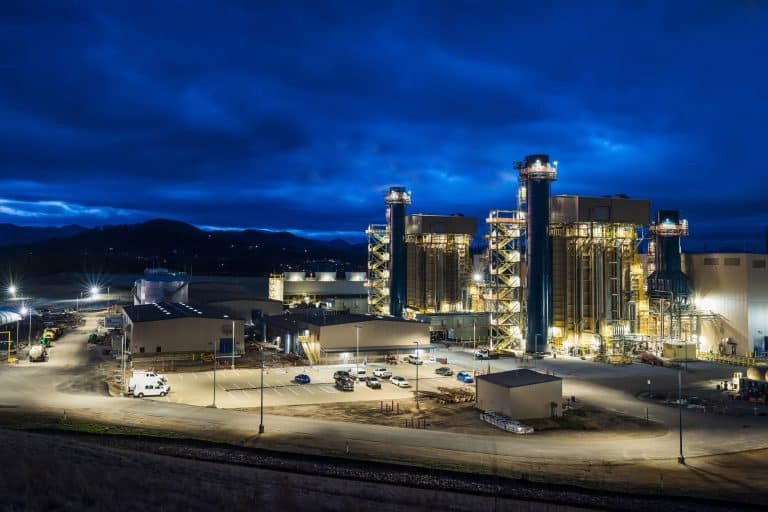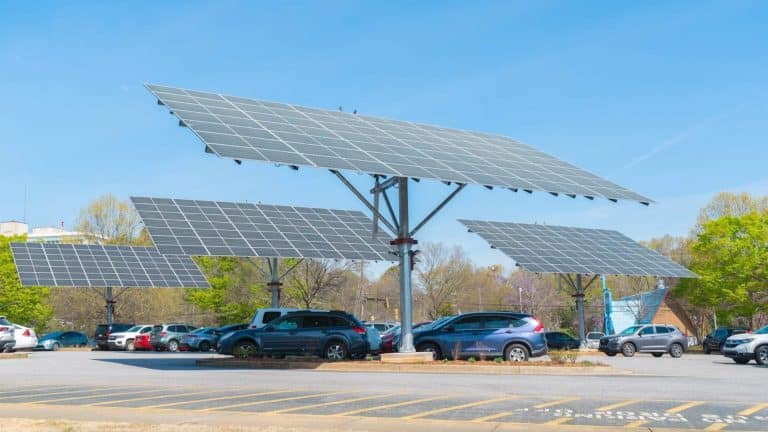Atlanta, Ga. – In a unanimous vote this morning, the five-elected members of the Georgia Public Service Commission (PSC) ignored their own Staff’s recommendations and that of other intervenors, including the Southern Alliance for Clean Energy (SACE), by failing to institute clear protections for Georgia Power customers from the bungled Plant Vogtle nuclear expansion in Burke County along the Savannah River. Instead, the Commission approved a slight reduction in the overall profit the Company could make on the mismanaged project that is more than five years delayed and has doubled in cost to over $27 billion.
Though the PSC Public Interest Advocacy (PIA) Staff filings and testimony clearly showed that the Company mismanaged the project for years and was ultimately responsible for mistakes by contractors, including the now-bankrupt Westinghouse, which led to billions of dollars in cost overruns, the Commission did not offer up any direct disallowance of capital and construction costs. This despite Staff testimony that showed a $5 billion increase in Company profits because of the five-year delay, from $7.4 billion for the original 2016/2017 completion dates to $12.6 billion over the life of the units with the revised 2021/22 dates.[1] Today’s decision to reduce the return on equity may amount to a minor reduction in Company profit. Georgia Power and the other Co-Owners, Oglethorpe Power, MEAG, Dalton Utilities, must now decide whether to continue with the Vogtle project.
“Today’s decision on the massive cost overruns and mismanagement of the Voglte nuclear units is a sad day for electric power customers in Georgia, they clearly have been manipulated by Georgia Power and abandoned by the Georgia Public Service Commission. Only a monopolist non-completive structure coupled with a “captured” regulator would reward hundreds of millions of dollars for mismanagement, delays and incompetence,” said Dr. Stephen A. Smith, executive director of Southern Alliance for Clean Energy. “This nuclear project is clearly not economic, it still has years to go before completion with billions of dollars of additional cost exposure to hard working Georgia families and small business, it’s simply a horrible deal for electric power customers. As the last new nuclear power plant standing this should be a lesson: these nuclear facilities can not be built on time nor on budget, their size and scale allow them to be ripe with corruption and mismanagement and we still have a long way to go with this failing project. We can do better.”
For the first time, the 17th semi-annual Vogtle Construction Monitoring (VCM) review included a Staff recommendation that not all expenditures incurred by Georgia Power during the reporting period were reasonable. The Staff recommended only $44 million, of a Company requested $542 million, be verified and approved. Liens and other amounts owed to Westinghouse contractors, totaling $498 million, should not be verified per the Staff recommendation, which was supported by SACE in its brief filed Tuesday. The Commission’s decision today also rejected that common-sense recommendation.
Though Georgia Power secured the remaining Toshiba Parent Guarantee last week, extensive expert testimony deemed the Plant Vogtle nuclear expansion project no longer economic even with the Toshiba payment for customers to pay for should it continue. The Staff testimony declared that the project had a current economic value of negative $1.6 billion,[2] which could degrade to a value as low as a negative $4.9 billion with further delays and risks.
“The relative position of new reactors compared to other alternatives continues to worsen. Even non-monetary factors like climate, fuel diversity, national security, energy security and the overall state economy cannot override the dismal economics of new reactors, in part because some of these costs are already borne by federal taxpayers and in part because other resources provide for them equally well and at lower cost,” said Mr. Peter Bradford, a former Commissioner with the U.S. Nuclear Regulatory Commission (NRC) and former Chairman of the Maine and New York utility commissions, who testified on behalf of SACE in last week’s hearing. “The PSC did not even consider an alternative course based on the combinations of energy resources that have replaced more than 150 canceled and closed nuclear plants without power shortages. To illustrate the folly of this course of action, Jacksonville Electric Authority reportedly is seeking to cancel its contract to buy power from Vogtle because it is too expensive compared to available alternatives.”
Bradford continued, “At the pace Southern Company is building Vogtle, Jesus Christ is as likely as President Trump to cut that ribbon.” Bradford’s comment was in response to Commissioner Echols recently quoted in the Atlanta Journal Constitution, “‘With the 6 percent [rate increase], you’re going to get nothing. You’re going to have rebar rusting until Jesus comes,’ Echols said. ‘With the 10 percent, you’ll have the premier nuclear plant in the United States, with the president of the United States probably flying down to Augusta on Air Force One cutting the ribbon.’”
Though SCE&G and Santee Cooper cancelled the only other nuclear reactor construction project in the country at the V.C. Summer plant in neighboring South Carolina, Georgia Power and its utility partners intend to move forward with Plant Vogtle. But a cloud of uncertainly still surrounds the Plant Vogtle’s future. For instance, the recently passed tax legislation did not include an extension deadline for the federal Production Tax Credits (PTCs) that expires on January 1, 2021. In the demands made by Georgia Power and Co-Owners, outlined in the17th VCM report, Congress not passing a PTC deadline extension, among many other risks, could be grounds for cancelling the project.
The implications that tax legislation could have on whether to continue the project led to today’s expedited decision, which was originally set for February 6, 2017. If the project is cancelled this year, approximately $150 million in savings could be realized due to the change in the corporate tax rate. This was outlined in letters between Georgia Power CEO Paul Bowers and PSC Chairman Stan Wise, who earlier announced he will resign shortly after the Vogtle vote.
“Today’s Commission decision does not inject certainty into the future of the off-track Vogtle nuclear expansion,” said Sara Barczak, high risk energy choices program director with SACE. “Many, many risks remain that could further derail the project and cause its demise. It’s just incredibly unfortunate that Georgia’s electric customers will be stuck footing the bill for everyone else’s costly mistakes, especially those of this Commission.”
Additional Information:Georgia Power’s 17th semi-annual Vogtle Construction Monitoring report listed an additional $4.5 billion capital cost estimate to complete Georgia Power’s portion of the project as 45.7%, which represents more than a doubling of the original certified capital cost estimate of $4.418 billion (and a total capital cost estimate for all Owners of $9.45 billion to complete the project). Georgia Power’s estimated financing costs are $3.4 billion, up significantly from the original $1.695 billion estimate. Originally the two reactor units should have both been online in April 2016 and April 2017 and new Company estimates, which the PSC PIA Staff could not verify as they did not receive the resource loaded fully integrated project schedule in time to review for last week’s hearing, are November 2021 for unit 3 and November 2022 for unit 4.
Over $2.2 billion in pre-collected financing costs have been charged to ratepayers due to anti-consumer state legislation passed in 2009 to incentivize building new reactors. Georgia Power is 45.7% owner in the project and remaining utility partners are Oglethorpe Power (30%), MEAG (22.7%) and the City of Dalton (1.6%). SACE determined the disproportionate burden due to pay-in-advance payments the Vogtle project has had on residential customers in comparison to large industrial users. Residential customers are currently paying over 0.7 cents/kWh, while industrial customers pay less than 0.2 cents/kWh. Over the first six years of these mandatory nuclear plant construction financing fees, residential customers have paid 45% more than average (on a per kWh basis), while industrial customers have enjoyed a 58% below average rate.
Plant Vogtle is located on the Savannah River near Waynesboro, Georgia. The Georgia Water Coalition selected the costly, water-guzzling nuclear expansion for their annual “Dirty Dozen” report, issued last month, and called upon the PSC to cancel the project and pursue less water-intensive, affordable energy choices such as solar, wind and energy efficiency and conservation.
Find filings with the Georgia PSC in the semi-annual Vogtle Construction Monitoring review docket here. Comments before the Commission on December 21, 2017 from SACE Attorney Renee Kastanakis here.

